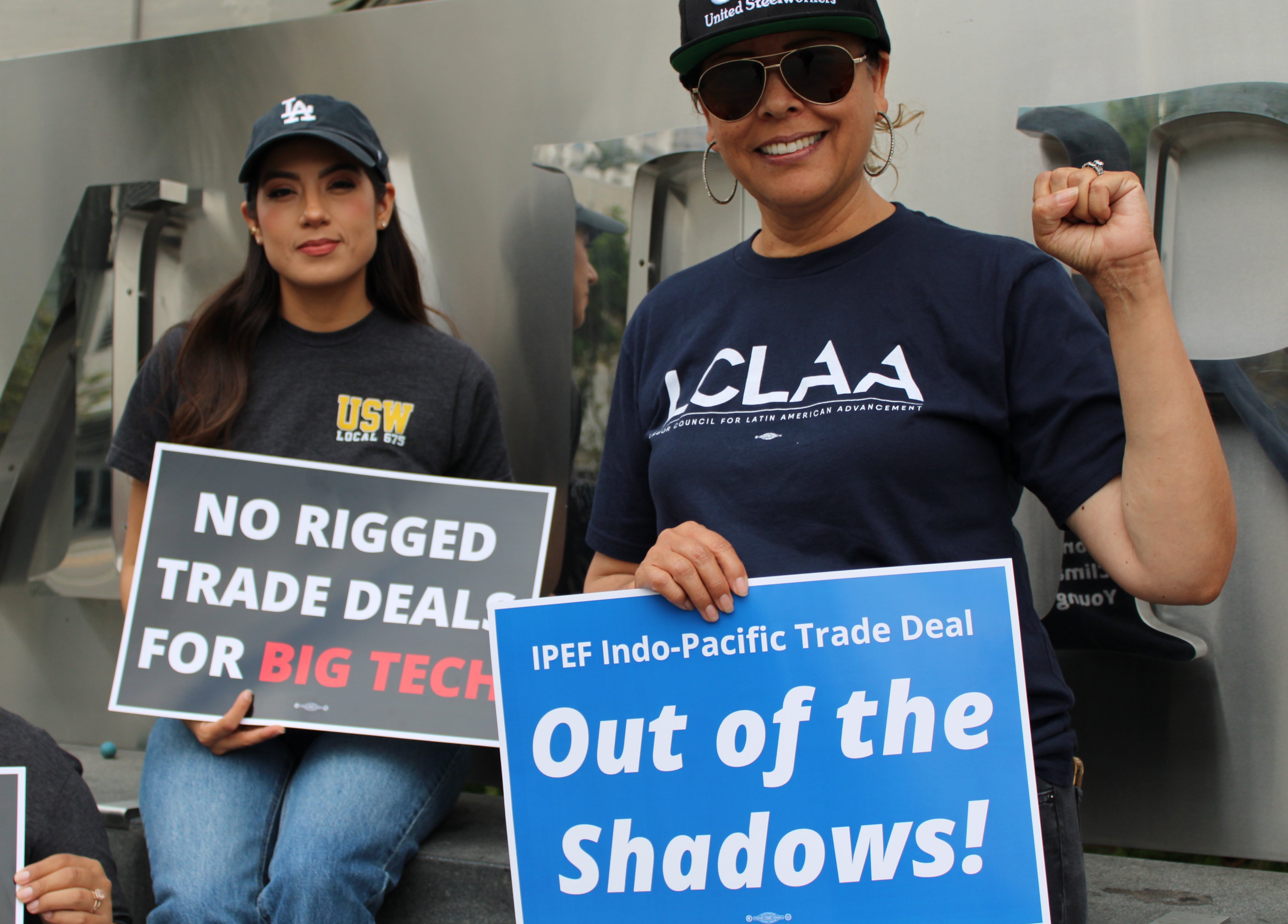What to watch at the Indo-Pacific Economic Framework (IPEF) ministerial in Detroit
Public Citizen | 24 May 2023
What to watch at the Indo-Pacific Economic Framework (IPEF) ministerial in Detroit
Contact: David Rosen, drosen@citizen.org
Omar Baddar, obaddar@citizen.org
As trade ministers gather for the second ministerial meeting of the Indo-Pacific Economic Framework (IPEF) talks, recent developments on the ground in Detroit indicate that politically powerful groups are watching with great anticipation.
Ahead of the ministerial meeting, members of Congress who represent the Detroit area spoke at a town hall on U.S. trade policy sponsored by Public Citizen, Communications Workers of America, United Auto Workers Region 1A, and United Steelworkers District 1.
U.S. Reps. Debbie Dingell (D-Mich.), Shri Thanedar (D-Mich.), and Rashida Tlaib (D-Mich.) answered questions from local labor and civil society representatives, who asked for assurances that IPEF would not replicate the damage that NAFTA and past free trade agreements inflicted on their city. (Video, copyright-free photos, and select quotes from the lawmakers are available.)
Detroit-area labor, environmental, and community groups have already taken to the streets to call for a new international trade model that puts working people, climate justice, and human rights before profit. (AP photos are available, as well as copyright-free images and videos.)
Here are four developments to watch for:
If an early harvest of IPEF’s Supply Chains Pillar 2 is announced, will the public finally get to see the text? The Biden administration has been adamant that it is pursuing a new, worker-centered model of trade. We may soon see how successful that effort has been, as an announcement of at least a portion of Pillar 2 on Supply Chains is expected this week. Calls for transparency have been mounting since the IPEF talks began last year, including from 40+ members of Congress, and 400+ U.S. organizations.
If we do get to see that text, will it have the strong and enforceable labor and environmental standards that voters demanded? The administration’s Labor Advisory Committee for Trade Policy, made up of a number of the country’s largest unions, have demanded that “IPEF must include strong and enforceable labor standards and corporate accountability measures integrated throughout each of the framework’s modules or pillars…[building] on the progress made under the United- States-Mexico-Canada Agreement (USMCA).” Leading environmental organizations like the Sierra Club have also called for facility-specific enforcement of key international environmental obligations, with penalties for violations.
If we hear more about the deal’s digital trade terms, will they reflect Big Tech’s demands? Or will the approach reflect recent concerns related to potential impacts on efforts to protect data privacy and address discriminatory and anti-competitive practices by Big Tech companies expressed by congressional Democrats, congressional Republicans, the faith community, and small- and medium-sized tech companies.
Will there be any signs of a Critical Minerals Agreement (CMA) or similar language to allow IPEF partners to qualify for the Inflation Reduction Act’s electric vehicle tax credit? If so, expect outrage from members of Congress who are increasingly frustrated with their shrinking role in crafting U.S. trade policy. And if any CMA replicates the weak and unenforceable labor and environmental terms from the U.S.-Japan CMA, expect push back from those constituencies as well.
Please contact any of the individuals listed above to speak with an expert.






